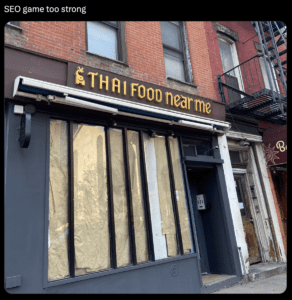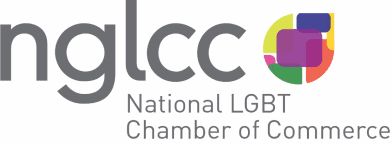Unlocking Success: Why SEO is Vital for Small Businesses
Introduction: Navigating the Digital Landscape
In a world driven by digital dynamics, small businesses face the challenge of standing out in the vast online marketplace. This article delves into the crucial role of SEO in propelling small businesses toward success.
Understanding SEO (Search Engine Optimization)
What is SEO, and Why Should Small Businesses Care?
SEO is the compass guiding online visibility. For small businesses, it’s not just a tool; it’s the lifeline to potential customers in the digital realm.
You can think of SEO like dating.
When you first start dating someone, they don’t really know a lot about you. They may know the basics, but not much beyond that.
If you want to be the first thing that pops up on the top of Google search when someone looks up what your offer or the niche you’re in, you’re going to need to date Google.
Just like dating, Google has no idea who you are when you first put up a website. Even if you’ve had a website for a while Google still might not know who you are depending on what you do with that website.
To begin “wooing” Google, you need to start publishing content regularly. Most often, this comes in the form of blog posts or articles. You can think of each post like going on a date with Google. The more dates you go on, the more Google will know about you. The more Google knows about you, the more it will begin to like and trust you.
When you’re regularly putting out blog articles on your website about your specific niche or business, you’re building a library of text on your website. The more text you have, the more Google understands who you are and what you offer, the more chances you have of ranking high in Google search and getting a bunch of free traffic coming your way.
If you don’t have time to read this whole article right now, I’ve also recorded a quick 30 minute podcast episode about why SEO is so important for your business that you can listen to while on the go.
The Power of Visibility: Breaking Down SEO Benefits
1. Increased Online Presence
Small businesses often struggle to be noticed. SEO acts as the spotlight, ensuring your business doesn’t remain in the shadows.
Every time you put out a new post, Google will “crawl” that post and learn a little bit more about you and your business.
Eventually, you will reach a critical mass that us SEO nerds like to call “topical authority” in your niche. This means that you’ve talked about this one topic (and its sub-topics) so many times that Google has no choice but to believe you’re an expert in that field because you have so much content on your website about this topic.
The more you do this, the more chances you have for Google to show your website and articles in Google search.
Which leads me to my next point.
2. Targeted Traffic: Quality Over Quantity
SEO not only brings traffic, but it brings the right kind of traffic. It filters in potential customers genuinely interested in your products or services.
The more articles you put out there, the more chances you have to rank on Google. This translates into having more traffic coming to your website because they are interested in the thing you talk about.
When people find your website this way it’s called “search intent.”
Someone went to Google, looked something up and your website popped up for them. They then click on your website link and you can then start them on your funnel (get them to book a free consultation, try out a product, use your service, etc.) if you’ve done a good job of writing that article that solves their problem or answers their question.
Being great at answering “search intent” to drive traffic to your website will move mountains for your business.
3. Building Trust: The SEO Credibility Factor
Customers trust websites that appear at the top of search results. SEO builds credibility, establishing your small business as a reliable player in the market.
The more you invest into your SEO strategy and build out your library of content, the more you can expect your website traffic to grow, and that usually translates into more money in your pocket.
When you go to Google something, do you usually scroll all the way down to the 15th listing, or do you stick to the top 3-5?
You probably stick to the top few because Google wants to make you happy, and it can only do that if it provides the best answers and results for you.
The same goes for people looking up things in your niche.
If you’re not ranking in the top few spots for search queries about your niche or industry, then you might as well be invisible online.
You can also help build trust in your website by having credible websites link to yours.
Did an interview? Ask them to link to your website.
Wrote an article for another page? Ask them to link back to your website.
Were you a guest on a podcast? You got it, ask them to link back to your website!
4. Cost-Effective Marketing
In the realm of tight budgets, SEO stands out as a cost-effective marketing strategy, offering long-term benefits without breaking the bank.
Yes, SEO is a long-term strategy. Any expert worth your while will give you a 6 month – 1 year range for building and growing your websites SEO, and that can cost you anywhere from $1,000-$7,000+ a month.
But how much do you spend on ads each month?
If you’re spending money on ads, you have to do that over and over again to see any return and the moment you stop the ads everything goes away.
With SEO, you’re building a business asset.
Your blog articles will live on for months, if not years, and will continue to rank in Google search and bring in new traffic without you needing to constantly pump money into ads. The more you build your website authority in your niche, the more traffic you will get.
One well written SEO article can generate hundreds of thousands of clicks to your website, without spending $1-$50+ per click. But, that can only happen if you invest in your SEO strategy.
5. Local Business Boost
For small businesses catering to local markets, local SEO becomes a game-changer, ensuring you’re the go-to choice in your community.

(Photo credit: https://x.com/0xgaut/status/1641619593830514688?s=20)
It may be a funny meme, but it’s a funny meme that’s amassed over 2.9 million views and I’m sure the owners are going to be laughing all the way to the bank.
When you play the SEO game right, you can win big for your small business.
Navigating SEO: Tips for Small Business Owners
1. Keyword Optimization: The Heart of SEO
The first step in keyword optimization for your website is to identify keywords relevant to your business and then integrate them seamlessly into your website content to enhance your Google visibility.
You can’t just go out there and write hundreds of posts and hope for the best. I mean, it’s better than nothing, but if you’re going to work on SEO you should do it the right way.
Find someone who is an SEO expert and invest in working with them. If you can’t afford that at the moment, then when you go to write posts you should first find out how popular that topic is.
Try for topics in your niche that are natural questions in your industry and then try your best to answer those questions in a blog post. This gives people the opportunity to get to know, like, and trust your business before they decide to work with you or hire you.
If you’re going to try doing SEO yourself, get really good at answering people’s questions.
2. Mobile-Friendly Optimization
In the era of smartphones, a mobile-friendly website isn’t just a choice; it’s a necessity. Google favors mobile-responsive sites, boosting your SEO ranking if you’re fully mobile friendly.
This is something that should be almost built into your website provider these days, but some older websites or super customized websites don’t have this, and that’s bad.
The more mobile friendly your website, the more Google will send traffic your way.
3. Speed Matters
You can’t just have a bunch of content on your website and assume everything is good.
Even if you have the BEST SEO content, if your website is too slow, Google will rank you lower because no one likes a slow website.
Our attention spans are far too short these days to even wait a few milliseconds for a website to load. If you want to know how fast (or slow) your website is, you can use the Google PageSpeed tool to check for both desktops and mobile speeds.
Anything below 90 for both is not good. You want to keep your website speed as close to 100 as possible.
If your website is slower than your competitors, the chances of Google sending them all the traffic is going to be much higher.
Pro Tip: WordPress is the platform you need to use for your website if you want to have the fastest speeds. There are loads of plugins that can help you get to that 100 speed mark.
Websites like SquareSpace and Wix are great for putting up a basic website and are simple to use, but it’s really hard for them to rank high on speed tests.
Conclusion: Elevating Your Small Business with SEO
In conclusion, the digital landscape can be a challenging terrain for small businesses, but with SEO as your guiding star, you can set your business up for long-term success.
Remember, the more you date Google, the more it’s going to know, like, and trust your website.
Author Box Bio:
Calan Breckon is an SEO Specialist and host of “The Business Gay” podcast. He has worked with companies such as Cohere and Canada Life and has been a guest on the “Online Marketing Made Easy” podcast with Amy Porterfield.
You can find out more on his website CalanBreckon.com
